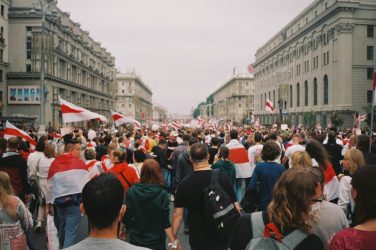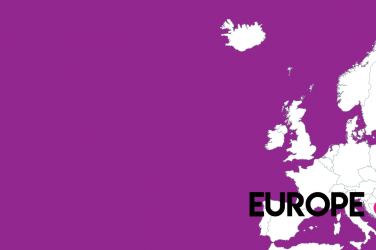The EU elections that took place across the UK were definitely peculiar. Despite more people than ever being aware of the EU in British political discourse, no one expected us to take part. And despite three years of constant debate over the EU, this election was visibly more focused on the national conversation that we have been engaged in for so long. Many likened it to a second referendum to test how the national mood has changed, if it has at all, since the first one. Thus, there was no widespread discussion over the future of Europe beyond and above Brexit. Perhaps because of this very reason, there was a distinct lack of European-ness, which is most shamefully found in the shocking levels of disenfranchisement of innumerable amounts of EU citizens across the UK in what has come to be known as the Denied My Vote Scandal.
Ultimately, the election was an opportunity to test the direction we want our nation to head in, either in Europe or standing alone on our own. This is a question equally applicable to the 3 million or so EU citizens who have exercised their constitutional rights in moving to the UK and making this their home. For this reason I urged my French partner to register to vote; so that she has her say in the most important conversation of recent times of her new home.
You can imagine my surprise when, after exercising my own democratic right and duty, I get a phone call from her informing me that she had been turned away from the polling station. I ask why, to which she replies, ‘they told me I am an EU citizen and so need to vote in my own country’. After she asked for clarification a few times, she was simply asked to leave the polling station. So without a more detailed explanation she was denied her vote although going through the standard process of registering online. Only afterwards it became apparent that EU citizens were required to complete an extra form, called UC1, in order to be eligible to vote in the UK. However, at no point while registering online this form was mentioned. This is something others have experienced too. There appeared to be not enough clarity and guidance regarding the importance of this form.
 Annoyed, I turned to Twitter to vent frustration where I found that #DeniedMyVote had already started to trend. That’s when I realised that this was much bigger than simply one mistake. Across Twitter, a mixture of stories started to emerge. People who completed all necessary documentation, including the UC1 form, were turned away over claims that their local authority had not received it in time, that the form was lost, and bizarrely because the certain authorities did not accept emailed copies of the form. In one particularly concerning case in Tower Hamlets, two German nationals went in person on the 2nd of May to hand in the forms to their council, given that the deadline was the 7th. When they handed in the forms they received no receipt of acknowledgement apart from being told it would be processed. Yet, when they came to vote, were told their documents were not processed till the 16th – way after the deadline. It was only after a review of the CCTV footage of 2nd May that the council admitted their error and allowed them to vote.
Annoyed, I turned to Twitter to vent frustration where I found that #DeniedMyVote had already started to trend. That’s when I realised that this was much bigger than simply one mistake. Across Twitter, a mixture of stories started to emerge. People who completed all necessary documentation, including the UC1 form, were turned away over claims that their local authority had not received it in time, that the form was lost, and bizarrely because the certain authorities did not accept emailed copies of the form. In one particularly concerning case in Tower Hamlets, two German nationals went in person on the 2nd of May to hand in the forms to their council, given that the deadline was the 7th. When they handed in the forms they received no receipt of acknowledgement apart from being told it would be processed. Yet, when they came to vote, were told their documents were not processed till the 16th – way after the deadline. It was only after a review of the CCTV footage of 2nd May that the council admitted their error and allowed them to vote.
We are constantly told to respect the ‘will of the people’, but can’t properly run democratic European elections. The irony of that is nothing less than a national scandal.
So what went wrong? It is impossible to answer this question without speculating on issues that are still coming to light. However, on the day of the election focus was mainly on local authorities as the cause for what happened. In one of the most centralised countries of the OECD, where local authorities have been at the brunt of austerity, and central government have been cutting their budget for almost 10 years now, I would caution against pinning the entirety of the blame on the level of the local state. Given how late confirmation of the elections taking place was given, compounded by the strains already facing local authorities across the UK, they had to mobilise in a very short time. The fact that there were problems in local authorities across the UK, suggests a more systemic issue at play here. The day after the election, the head of the Electoral Commission admitted that planning for the elections was not good enough, but maintained that they warned politicians of the issues a last minute election would pose for EU citizens.
Campaign groups raised awareness of these issues long before the elections. New Europeans, a campaign group working on citizens rights, wrote to the Minister for the Cabinet Office, David Lidington, on 25 April 2019 outlining their concern over the how the UC1 forms were not being sent out in time, and in certain circumstances not at all. Highlighting how the late dispatch of the forms were giving no time for EU citizens to return them, and at times completely missing the attention of those who did not know about the process. To resolve this, they suggested stocking the forms at polling stations so they could be signed on arrival, and polling cards should be sent to all EU citizens on the electoral register, not just those who had already sent the UC1 form back.
They also drafted an Early Day Motion, tabled by Mike Gapes MP, calling for this to come into affect. The day before the election, Joanna Cherry QC MP brought the problems that the two step process and inaccessibility to UC1 forms could cause for EU citizens to the Prime Ministers attention, suggesting that these forms be made available in polling booths. However, rather than engage with the issue raised, the Prime Minister dismissed the point claiming that all was being done to allow citizens to vote.
These points are important to remember going forward in holding this government, however long it lasts, to account. No one can say that concerns weren’t raised before the election. Thankfully, Claude Moraes MEP has called on the Home Secretary Sajid Javid to launch an immediate enquiry into what went wrong. Equally, Catherine Bearder MEP has authored a cross party letter to the Electoral Commission on behalf of those British Citizens living in the EU27 who were also disenfranchised. Moreover, on 3 June 2019 EU Commissioner Věra Jourová met with the Electoral Commission in London to discuss what happened, and agreed to follow up on the numerous complaints. A petition has also been launched calling for a public inquiry of the EU27 citizens disenfranchised in the UK, and the Brits in the EU27. If you are a British citizen or resident in the UK it is vital that you sign it. And if you are an EU27 citizen in the UK who has been disenfranchised, the3million are still collecting stories.
It is important that we do not let this slide, and allow the Westminster theatrics that will ensue with the leadership contest to get in the way of getting to the bottom of this. That is why the news that campaigners for EU citizens denied their vote in these elections are planning to sue the UK government is so significant. The right to vote is the foundation to any functioning and legitimate democracy. How can we continue discussing ‘the will of the people’ if we are denying a say for those very same people? And ultimately, if this is how EU citizens are being treated now, what does this mean for their rights in a post-Brexit Britain?






